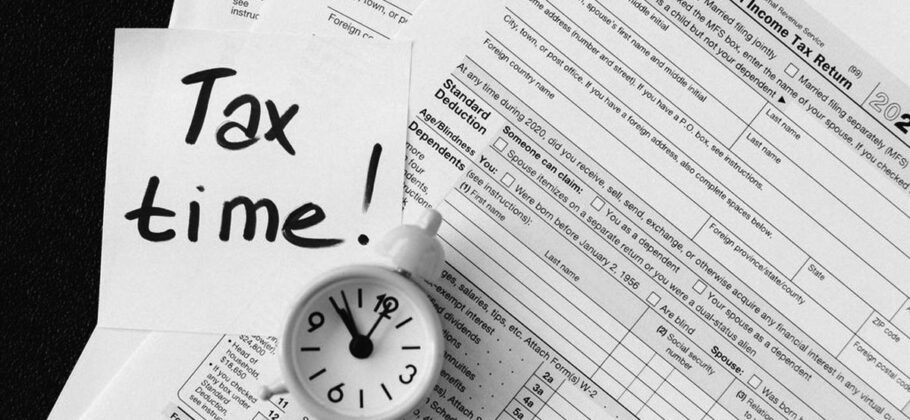Filing your taxes may not be your favorite task, but understanding the key rules, deadlines, and opportunities can make it much easier—and potentially save you money. Whether you’re filing for the first time or have been doing it for decades, here are the 20 most important things to know when submitting your federal tax return.
1. The Deadline is April 15 for Most People
Federal income tax returns for the 2024 tax year are due April 15, 2025. However, if you were impacted by natural disasters or terrorist events—like wildfires in California or conflict-related events in Israel—you may have more time to file. Active-duty military in combat zones also qualify for extended deadlines.
Applies to: Most U.S. taxpayers
How to do it: Check the IRS website for extension details
Importance: High—missing the deadline without an extension results in penalties
2. You Can Get an Extension—but Not on Payment
Filing IRS Form 4868 by April 15 grants you an automatic six-month extension to file. However, taxes owed are still due by April 15. If you don’t pay by then, you’ll face penalties and interest.
Applies to: Anyone who needs more time to file
How to do it: Submit Form 4868 online or by mail
Importance: High—protects you from the larger failure-to-file penalty
3. Seniors Can Use a Special Form
Taxpayers age 65 and older can use IRS Form 1040-SR, which has larger print and a chart to help claim the higher standard deduction for seniors.
Applies to: Individuals 65 or older
How to do it: Ask your tax software or preparer to use Form 1040-SR
Importance: Medium—makes filing easier and ensures accurate deductions
4. Higher Standard Deduction for Those 65 and Older
If you’re 65 or older, your standard deduction increases. Single filers get an extra $1,950, and married filers each get $1,550. A couple where both spouses are 65 or older can deduct up to $32,300.
Applies to: Seniors
How to do it: IRS software calculates this automatically
Importance: High—significantly reduces taxable income
5. You Might Not Have to File at All
If your gross income is below your standard deduction, you may not have to file a return. However, you might still want to if you’re eligible for refundable credits like the earned income credit.
Applies to: Low-income individuals and seniors
How to do it: Use the IRS Interactive Tax Assistant to check
Importance: Medium—filing could result in a refund even if you don’t owe taxes
6. Some Deductions Don’t Require Itemizing
Even if you take the standard deduction, you can still claim “adjustments to income” like student loan interest, HSA contributions, and retirement plan deductions.
Applies to: Most filers
How to do it: Use the deductions section on IRS Form 1040 Schedule 1
Importance: High—these deductions lower taxable income
7. Filing Electronically Gets You Your Refund Faster
E-filing with direct deposit typically results in refunds within 21 days. Paper returns take longer and can delay your refund by weeks.
Applies to: Everyone
How to do it: Use IRS Free File or commercial tax software
Importance: High—faster refunds and fewer errors
8. File Early to Prevent Identity Theft
Filing early reduces the chance of someone filing a fraudulent return in your name. You can also request an Identity Protection PIN (IP PIN) from the IRS for added protection.
Applies to: Everyone
How to do it: Request an IP PIN on IRS.gov
Importance: High—helps prevent tax fraud
9. Use the “Where’s My Refund?” Tool
Track your refund on the IRS website or mobile app. You’ll need your Social Security number, filing status, and refund amount.
Applies to: Everyone
How to do it: Visit IRS.gov and search for “Where’s My Refund?”
Importance: Medium—helps monitor your refund status
10. Free Tax Help is Available
If your income is under $67,000 or you’re a senior, you may qualify for free help through VITA or AARP Tax-Aide. IRS Free File is also available for adjusted gross incomes under $84,000.
Applies to: Low- to middle-income taxpayers and seniors
How to do it: Search VITA or AARP Tax-Aide online
Importance: High—professional help can reduce errors and stress
11. Adjust Your W-4 to Avoid Surprises
Use IRS Form W-4 to change how much tax your employer withholds. Adjusting it can help avoid underpayment or large refunds.
Applies to: Employees
How to do it: Submit a new W-4 to your employer
Importance: High—ensures your withholdings match your tax liability
12. Maximize 401(k) Contributions
Contributing to a 401(k) reduces taxable income. In 2025, you can contribute up to $23,500, or $31,000 if you’re 50 or older.
Applies to: Workers with access to 401(k)s
How to do it: Contact your HR or payroll department
Importance: High—saves taxes now and helps build retirement savings
13. Use an IRA for More Savings
You can contribute up to $7,000 ($8,000 if 50 or older) to an IRA for 2024 until April 15, 2025. Traditional IRA contributions may be deductible.
Applies to: Anyone with earned income
How to do it: Open or contribute to an IRA with a bank or brokerage
Importance: High—can reduce your tax bill and grow tax-deferred savings
14. Contribute to a 529 Plan
While federal taxes don’t allow deductions for 529 contributions, many states do. These funds grow tax-free when used for education expenses.
Applies to: Parents and students
How to do it: Open a 529 plan through your state or a provider
Importance: Medium—long-term tax savings for education
15. Fund Your FSA
Flexible Spending Accounts let you use pre-tax money for medical or childcare expenses. The 2025 limit is $3,300 for healthcare FSAs and $5,000 for dependent care FSAs.
Applies to: Employees with employer FSA plans
How to do it: Enroll through your workplace benefits
Importance: Medium—lowers taxable income and pays for needed expenses
16. Consider a Health Savings Account (HSA)
HSAs allow tax-deductible contributions for medical expenses. In 2025, you can contribute up to $8,550 for a family or $4,300 for individuals.
Applies to: Those with high-deductible health plans
How to do it: Open an HSA with a bank or your employer
Importance: High—offers triple tax benefits
17. Check If You Qualify for the Earned Income Tax Credit
Families with low to moderate income can receive up to $8,046 through the EITC. This is a refundable credit, meaning you can get a refund even if you owe no tax.
Applies to: Workers earning under $68,675
How to do it: IRS or software will calculate eligibility
Importance: Very high—can result in a large refund
18. Track Your Side Hustle Income
If you made more than $5,000 from freelancing or platforms like Venmo and Etsy, you’ll likely get a 1099-K. You’re still required to report this income even if you don’t receive the form.
Applies to: Gig workers, freelancers, and sellers
How to do it: Keep detailed records and report earnings
Importance: High—unreported income can lead to audits and penalties
19. Don’t Overlook Education Tax Credits
Students may qualify for the American Opportunity Tax Credit (up to $2,500) or the Lifetime Learning Credit (up to $2,000). You can’t claim both in the same year.
Applies to: College students and parents
How to do it: Use Form 8863 when filing
Importance: High—can reduce or eliminate your tax bill
20. Medical Expenses Might Be Deductible
If your unreimbursed medical expenses exceed 7.5 percent of your adjusted gross income, the amount above that is deductible if you itemize.
Applies to: Those with large medical bills
How to do it: Use Schedule A when itemizing deductions
Importance: Medium—can lead to significant deductions in high-expense years
Understanding these 20 key facts can help reduce your stress, maximize your refund, and keep you on the IRS’s good side. The earlier and more accurately you file, the more confident you’ll feel heading into tax season.





